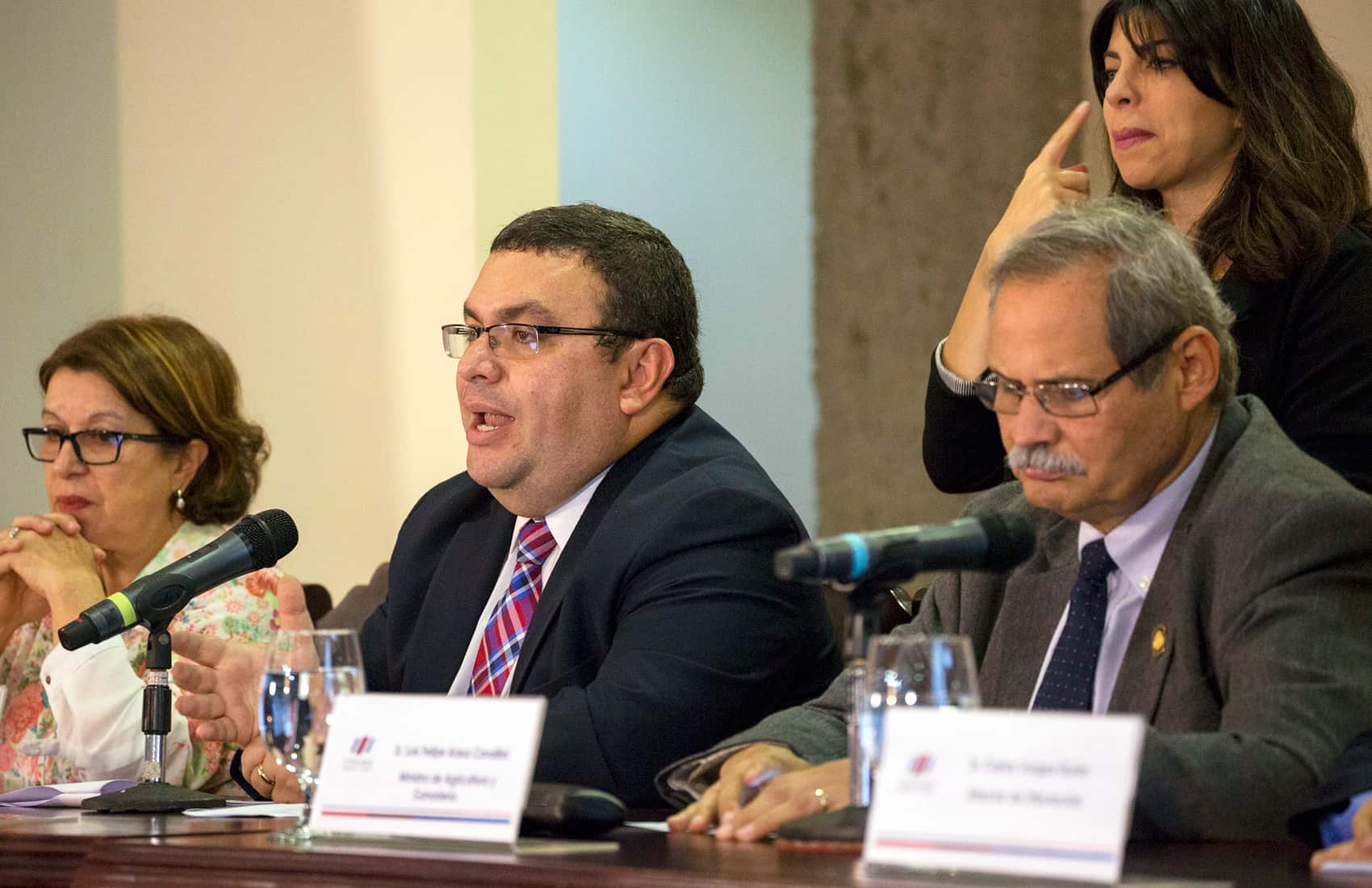The widespread scandal over the offshore dealings of individuals and companies revealed in the so-called “Panama Papers” may offer a window for the administration of Costa Rica President Luis Guillermo Solís to push through at least some of the fiscal reforms that have been paralyzed by opposition since he proposed them a year ago.
Lawmakers from several parties are seeking consensus to form a special legislative commission to investigate the local implications of the Panama Papers, according to ruling Citizen Action Party (PAC) legislator Emilia Molina Cruz. They also want to secure an agreement to expedite the approval of the Solís administration’s tax fraud bill before opening an investigation into offshore activities.
Hundreds of Costa Rican companies, law firms, current and former politicians and other individuals are mentioned in the Panama Papers, a massive document leak from the Panamanian firm Mossack Fonseca. That firm worked with celebrities, politicians, fraudsters, drug cartels and thousands of others across the globe to set up offshore financial schemes, in some cases apparently to skirt tax laws or hide suspicious fortunes.
The revelations regarding Costa Rica-based individuals and corporations have kicked the government’s tax reform campaign into overdrive. They have also given Solís a strong counterargument to the opposition’s assertion that the country’s fiscal problems are largely the result of unchecked spending.
The amount of revenue the government misses out on because of tax fraud, elusion and evasion is equivalent to 8 percent of Costa Rica’s Gross Domestic Product, according to the Finance Ministry. The country’s fiscal deficit is currently estimated at some 6 percent of GDP.
Broad Front Party lawmakers unanimously agreed Tuesday to support PAC’s proposal to expedite the tax fraud bill and open an investigation based on revelations in the Panama Papers leak, under the condition that the commission pledge to reduce the usual investigation time from six to four months.
The National Liberation Party (PLN), one of the biggest legislative groups, also agreed to support the plan.
“This is the right moment to discuss a fiscal reform for the country,” PLN lawmaker Antonio Álvarez Desanti said Tuesday.
Until now, one of the main points of debate over the tax fraud bill has been whether to require companies to report the identities of “beneficial shareholders,” shareholders who own their shares indirectly. The government was negotiating with the private business sector over the issue until mid-March, when it called the talks off citing disagreements between the two sides over the creation of a beneficial shareholder registry.
The Solís administration’s fiscal reform plan also includes raising taxes on the wealthy and swapping the current sales tax for a value added tax, which would make services taxable as well as goods. The plan has faced strong opposition among some business sectors and lawmakers.
Push for international cooperation
Besides announcing the administration’s own investigation into people and entities mentioned in the Panama Papers, Finance Vice Minister Fernando Rodríguez said Tuesday that the government would push for signing a tax information exchange agreement with Panama.
He said that negotiations over such an agreement started last year but have since stalled. Rodríguez said he would ask the Foreign Ministry to help restart negotiations as soon as possible.
The vice minister noted that Panama’s officials pledged to collaborate with all foreign governments seeking to open investigations based on revelations in the Panama Papers leak.
At home, Rodríguez said he planned to confer with the Prosecutor’s Office to identify crimes or violations potentially revealed by the document leak that could be prosecuted under local laws.
Rodríguez said the government was clear that creating corporations abroad for lawful purposes is normal in a globalized world, but he noted that such practices “in many cases have also been used to avoid tax compliance.”
Still, the vice minister said curbing tax fraud and evasion here depends mostly on comprehensive reforms of Costa Rica’s tax regulations and laws.






